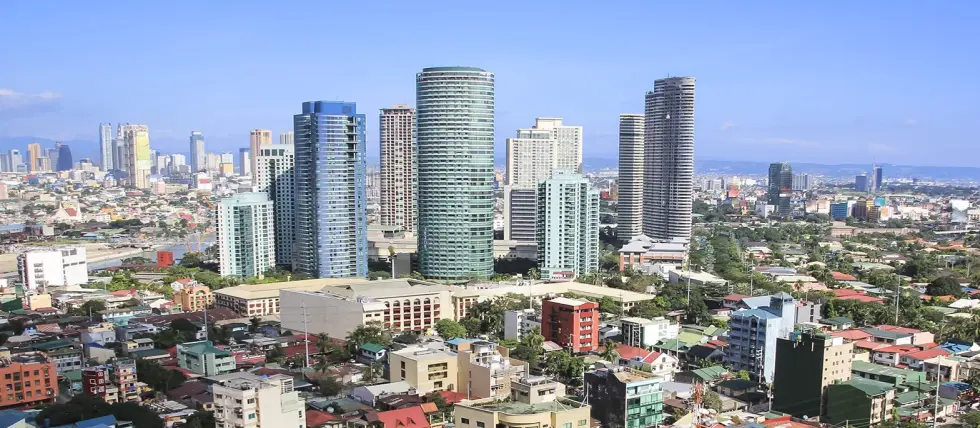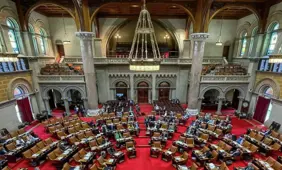Philippine Antimoney Laundering Council Investigating iGaming Segment
The Anti-Money Laundering Council (AMLC) of the Philippines has launched a comprehensive investigation into the online gambling sector to assess its vulnerabilities to financial crimes, including money laundering and terrorism financing. The assessment is aimed at identifying potential risks and ensuring that the country maintains robust defenses against illicit financial activities in an increasingly digitalized gambling environment.

Bangko Sentral ng Pilipinas (BSP) Governor Eli Remolona Jr., who also chairs the AMLC, told media outlet the Inquirer that the ongoing risk assessment will cover multiple forms of online gambling. He emphasized the importance of vigilance in the face of evolving threats, particularly those arising from digital platforms that can be exploited by criminal networks. Remolona highlighted that previous actions, such as the banning of Philippine offshore gaming operators (POGO), played a significant role in helping the Philippines exit the Financial Action Task Force (FATF) grey list.
Related: Foreign Workers Exit Philippines in Droves after iGaming BanIn February of last year, the FATF officially removed the Philippines from its list of jurisdictions under increased monitoring. This decision marked the culmination of more than three years of reforms and actions addressing 18 specific deficiencies in the country's anti-money laundering (AML) and counter-terrorism financing (CTF) measures. The Philippines was the only nation to be delisted during the latest FATF review cycle, reflecting substantial progress in regulatory enforcement and institutional improvements.
However, Remolona warned that technological advancements continue to present challenges, describing the current situation as an arms race between authorities and criminal actors. The rapid growth of the online gambling industry has increased the urgency for regulators to monitor and adapt to new threats. While the removal of POGOs significantly mitigated certain risks, other online gambling formats remain under scrutiny for their potential to facilitate the movement of illicit funds.
A spokesperson from the FATF indicated that while the Philippines has made progress, the country must continue engaging with regional AML bodies to sustain its improvements and strengthen systemic safeguards. Industry experts have echoed these sentiments, cautioning that regulation alone may not be sufficient to counter the persistent risks associated with digital gambling platforms.
More Business News
iGaming Remains Huge Part of Philippine Economy
According to data from the Philippine Gaming and Amusement Corporation (PAGCOR), gross revenues from the local gaming industry rose by 24.81% in 2024, reaching PHP410.5 billion (US$7.2 billion). Of this total, the electronic gaming segment contributed PHP135.7 billion (US$2.4 billion), representing a 309.2% increase. PAGCOR anticipates that the digital sector could equal the revenues generated by land-based casinos within two to three years.
This surge in online gambling activity has drawn the attention of legislators. Senate President Francis Escudero has called for a detailed review of onshore online gambling operations, citing concerns about their potential negative social and economic impacts on Filipino communities. The expansion of digital gaming services has raised questions about whether existing oversight mechanisms are adequate to manage associated risks.
Choon Hong Chua, head of the financial crime practice group for the Asia-Pacific and Middle East at Moody’s, noted that despite the Pogo ban, online gambling still poses risks due to its rapid expansion and the presence of unregulated or underground operators. He stressed the importance of continued enforcement efforts and the need for collaboration between government agencies and the private sector to enhance regulatory effectiveness.
Chua added that continuous monitoring and enforcement of AML and CTF protocols are essential for maintaining the integrity of the financial system. These measures, he said, will ensure that the Philippines retains its hard-won progress in combating financial crimes and avoids reentering international watchlists. The AMLC’s ongoing investigation is expected to provide actionable insights into the vulnerabilities of the iGaming industry and inform future policy developments.
RELATED TOPICS: Business
Most Read
Must Read
 Interviews
Interviews
Sweepstakes Casinos: Thriving in an Ever-Changing Industry – Interview with Attorney Stephen C. Piepgrass
Feb 17, 2025 Interviews
Interviews








Review this New Post
Leave a Comment
User Comments
Comments for Philippine Antimoney Laundering Council Investigating iGaming Segment